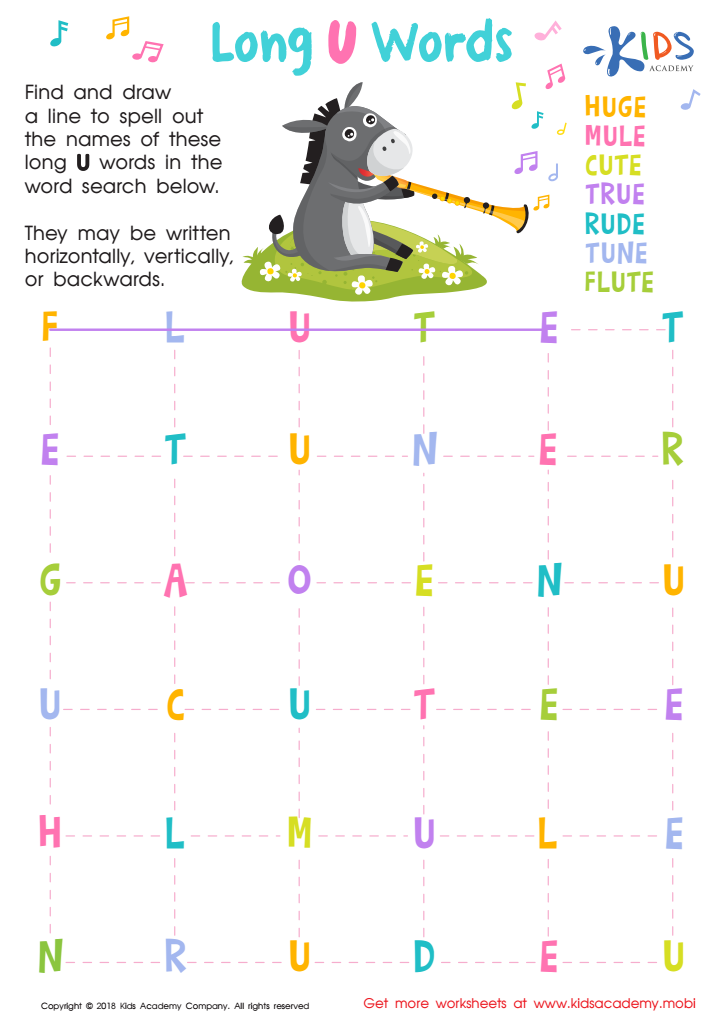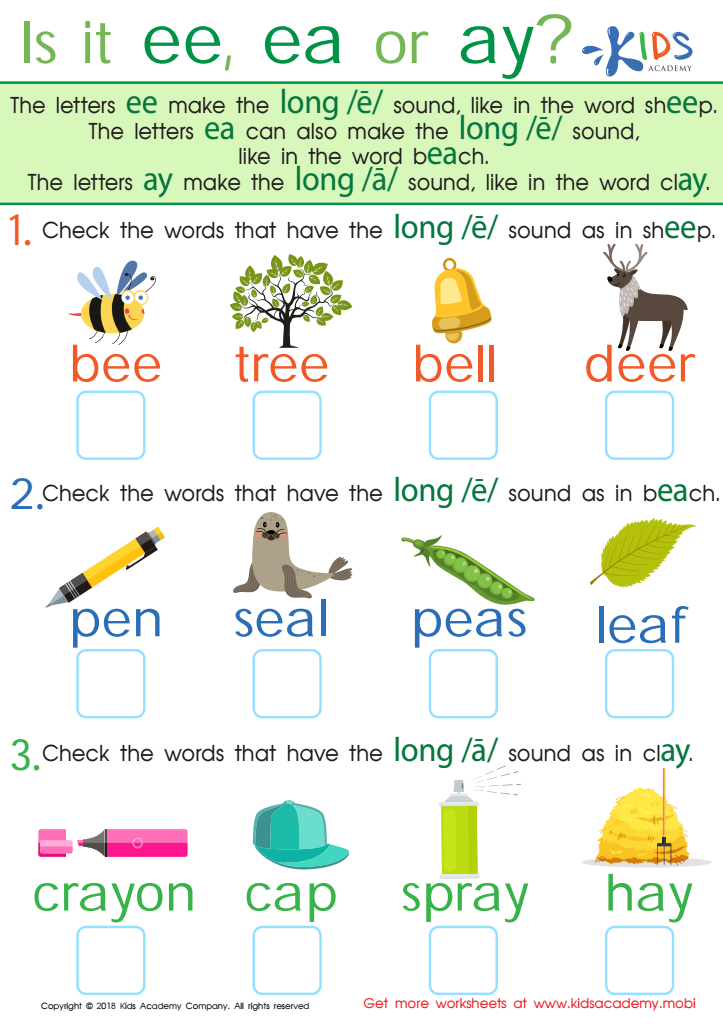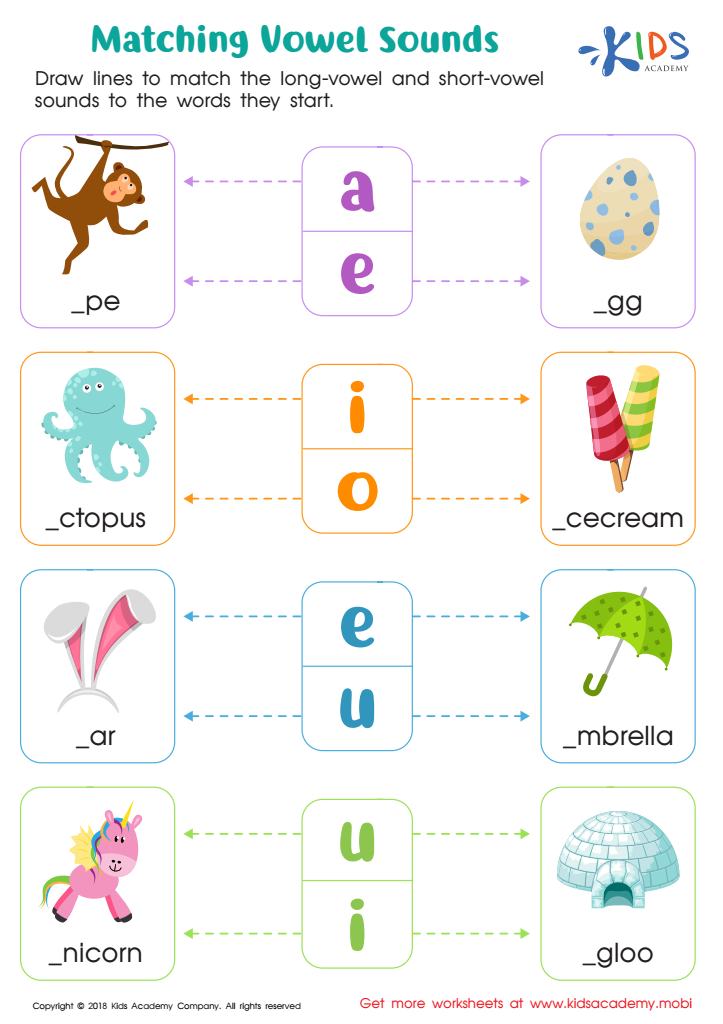Reading proficiency Normal Vowels Worksheets for 6-Year-Olds
4 filtered results
-
From - To
Boost your 6-year-old's reading skills with our engaging Reading Proficiency Normal Vowels Worksheets! Designed specifically for young learners, these fun and interactive worksheets focus on mastering vowel sounds, an essential foundation for reading fluency. Each activity combines colorful illustrations and simple exercises to keep kids motivated and entertained. Perfect for home or classroom use, our expertly crafted worksheets support your child's journey to becoming a confident reader. Watch them progress with ease as they identify, pronounce, and use vowels correctly. Give your child the reading advantage they deserve with our trusted and effective free resources!


Long /u/ Words Worksheet


Is It EE, EA, or AY? Worksheet


Matching Vowel Sounds Worksheet


Long and Short U Worksheet
Reading proficiency, especially mastering normal vowel sounds, is foundational for 6-year-olds for several reasons. First, understanding vowels is critical for phonemic awareness, which involves recognizing and manipulating individual sounds within words, a skill crucial for early reading success. Distinguishing between vowel sounds helps children decode new words, paving the way for fluent reading.
When children grasp normal vowel sounds, they can predict and recognize words more easily, enhancing both reading speed and comprehension. Comprehension allows for better retention and understanding of the content, which is vital across all subjects, as reading is integral to math problems, science instructions, and social studies texts.
Moreover, early reading proficiency is linked to academic success and long-term educational outcomes. Children who struggle with reading in the early grades often find it hard to catch up with their peers, leading to frustration, decreased motivation, and even negative attitudes toward school. This achievement gap can persist, influencing overall performance and self-esteem.
Parents and teachers should emphasize learning vowels because a strong reading foundation fosters a lifelong love of reading and learning. Early intervention and support can identify and address difficulties, ensuring all children develop the skills needed for academic and personal growth.
In summary, focusing on reading proficiency and vowel mastery at six sets the stage for fluent reading, academic success, and a positive attitude toward lifelong learning.
 Assign to My Students
Assign to My Students
















